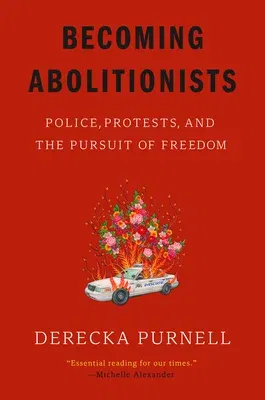One of the New York Times' 6 New Paperbacks to Read
Now in paperback and with new material, a 2021 Kirkus Best Book of the
year in both Nonfiction and Current Events, the book Naomi Klein called:
"a triumph of political imagination and a tremendous gift to all
movements struggling towards liberation."
For more than a century, activists in the United States have tried to
reform the police. Millions of people continue to protest police
violence because these "solutions" do not match the problem: the police
cannot be reformed.
In her critically acclaimed first book Becoming Abolitionists, Purnell
draws from her experiences as a lawyer, writer, and organizer initially
skeptical about police abolition. She saw too much sexual violence and
buried too many friends to consider getting rid of police in her
hometown of St. Louis, let alone the nation. But the police were a
placebo. Calling them felt like something, and something feels like
everything when the other option seems like nothing.
Purnell details how multi-racial social movements rooted in rebellion,
risk-taking, and revolutionary love pushed her and a generation of
activists toward abolition. The book travels across geography and time,
and offers lessons that activists have learned from Ferguson to South
Africa, from Reconstruction to contemporary protests against police
shootings.
Here, Purnell invites readers to envision new systems that work to
address the root causes of violence. Becoming Abolitionists shows that
abolition is not solely about getting rid of police, but a commitment to
create and support different answers to the problem of harm in society,
and, most excitingly, an opportunity to reduce and eliminate harm in the
first place.

